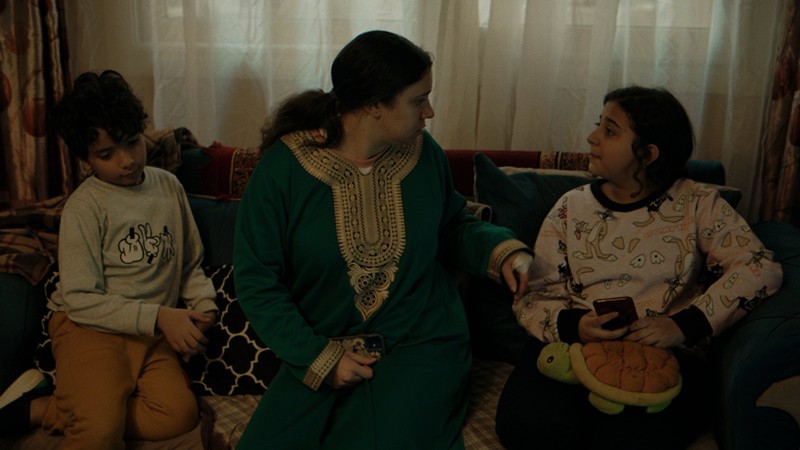El Gouna Egyptian Shorts: Local Stories Impress
.
VERDICT: Egyptian filmmakers stand out in El Gouna's official Short Film Competition.
El Gouna’s Short Film competition featured a high-powered collection of short projects from all over the world, aimed to promote accessibility and empowerment for new filmmakers and to support emerging talent. Here are some standout Egyptian contenders in this year’s competition.
LET US PLAY YESTERDAY
Menna Ekram, with previous experience in commercial TV series and shorts, takes an Egyptian Catholic school as the location for Let Us Play Yesterday. Sarah, a 14-year-old student played by Fairouz Saad, trembles during rehearsals for a Mother’s Day performance in her school, while being coached by a strict nun. Sister Noura, played by award-winning Egyptian dancer and choreographer Karima Mansour, takes Sarah to her private residence to adjust her long dress, opening up a new connection between the two characters, where the wall between the strict teacher and the shy student breaks down and female solidarity emerges. The contrast between the student’s flowery pink dress and the nun’s black habit is highlighted by director of photography Ahmed Jalboush. Yomna Khattab’s screenplay touches on oppressed body freedom and stereotyped standards of beauty, not only from the student’s perspective but also from the nun’s. It is a rare topic in Egyptian cinema, which gives Let Us Play Yesterday extra points.
OBJECTS ARE CLOSER THAN THEY APPEAR
In Objects Are Closer Than They Appear, Ahmed Sobhy masterfully tells a short story about a young man, Nae’em, who is trying to pay back some money he owes his girlfriend. Sobhy takes the camera into the typical middle-class flat of an Egyptian family where Nae’em visits his married sister, whose life unfolds amid debt, two kids, and exhaustion. She has to endure the abuse and frustration of not only her brother but also her mistrustful and possibly abusive husband (Mahmoud Elwekil).
Despite having little dialogue, Elwekil gives a calm performance that puts the marriage in context. With impressive body language and facial impressions, Mona Ragab is brilliant as a housewife stuck between her husband’s patriarchal net and her family’s apathy. Despite her ill treatment, she continues to make ends meet. Sobhy, who plays the main character Nae’em, takes on a fragile masculinity that feeds on others’ kindness, especially women’s. In one tense shot lasting 16 minutes with no cuts, cinematographer Mostafa Sheshtawy realistically captures a future miserable family. It is such a pleasure to see Egyptian filmmakers embrace this kind of realism in their stories, not dumbing it down for a wider audiences, but using it to create a captivating thriller.
60 EGYPTIAN POUNDS
60 Egyptian Pounds, Amr Salama’s latest project, opened the El Gouna Film Festival. Here the award-winning Egyptian filmmaker of Sheikh Jackson takes another risk in a visually impressive slow-burn short thriller. The story starts at a boiling point in the life of an impoverished family in rural Egypt, one plagued by domestic violence. Teenage Ziad takes matters into his own hands to defend his mother and physically impaired younger brother. Living in dire poverty, the family tries to move on with their daily lives and live normally, eating, studying, sleeping. Then an unwanted visitor knocks on the door.
The visuals in Salama’s short are grim and the violence is excruciating. Although part of the film takes place in the daytime, Ahmed Bayoumi Fouad’s camera stays indoors, echoing the characters’ fear and how each of them is trying to process trauma. Despite being forced to grow up early to protect his family from his abusive dad, Ziad (played by rapper Ziad Zaza) is still a teenager, writing rap lyrics in school textbooks and drawing on the bathroom mirror. In a dreamlike sequence, he practices his melancholic lyrics about being raised in violence, at a school where the fee is 60 Egyptian pounds. Rap and Trap are growing underground music genres in Egypt, giving voice to disenfranchised youth nationwide as they put their nightmares, dreams, and frustrations on the Internet. While some songs eventually get commercialised in product ads, Salama has managed to dig a story out of one and put it to artistic use.

